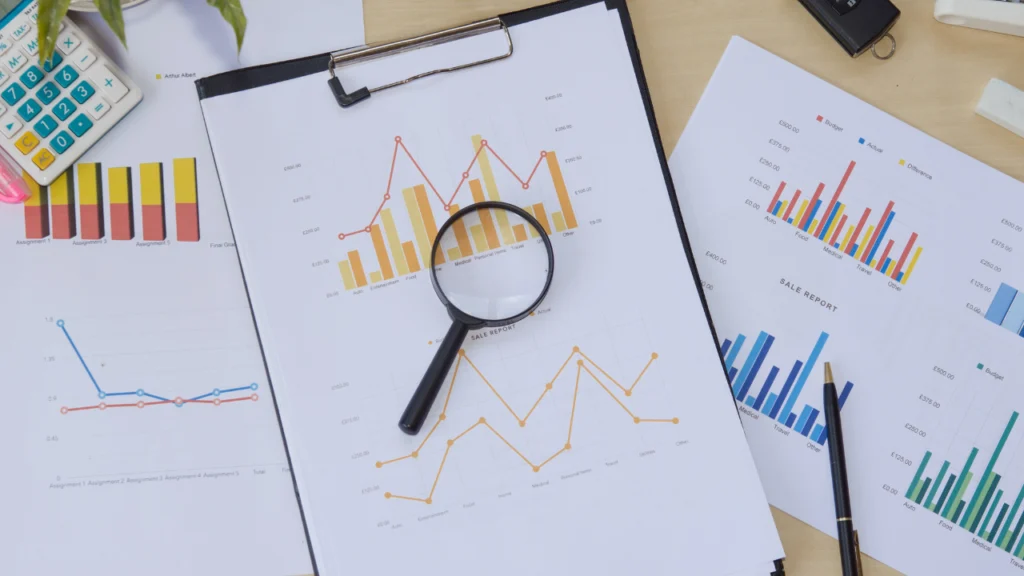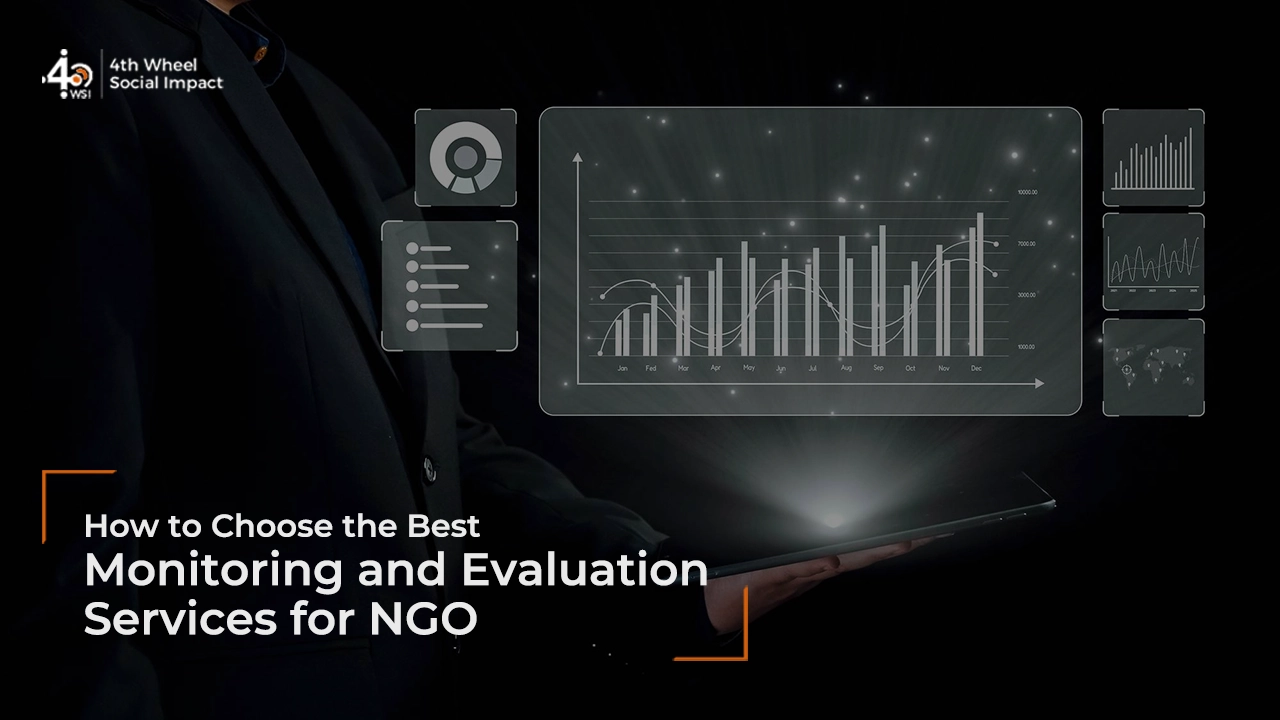In development programs, doing the work is only part of the equation. Impact has to be measured, shared, and improved. That’s where the MEAL framework comes in. It gives organisations a structured way to track progress, stay accountable, and learn from what they do.
At 4th Wheel, as best monitoring & evaluation consultant, we’ve seen how strong MEAL systems can sharpen program focus, improve community trust, and bring clarity to the chaos. Whether you’re managing a CSR initiative, running an NGO, or building a long-term development project, this framework helps you stay on course and build something that lasts.
What Is MEAL Framework?
The MEAL framework refers to Monitoring, Evaluation, Accountability, and Learning. It’s a structured approach used by NGOs, CSR teams, and development organizations to understand and improve their programs over time.
Each part of MEAL plays a distinct role:
- Monitoring tracks ongoing activities and outputs.
- Evaluation looks at outcomes, impact, and what’s changed.
- Accountability focuses on transparency and responsiveness, especially to communities and stakeholders.
- Learning means using the data and feedback gathered to improve future actions.
Together, MEAL in development programs makes sure that organizations don’t just report what happened, but actually learn how to do better. It moves the focus from activity to impact.
Also Read: What is the Difference between Monitoring & Evaluation

Benefits of MEAL Framework
A strong MEAL system brings structure to impact work. It helps organisations stay focused, make better decisions, and stay accountable to the people they serve. Below are some of the most valuable benefits of using the monitoring, evaluation accountability learning approach.
1. Improves Program Focus and Efficiency
With the MEAL framework, teams track exactly what they’re doing, how they’re doing it, and why it matters. This clarity helps avoid scattered activities and keeps everyone aligned. Instead of chasing multiple unrelated goals, a well-planned MEAL plan monitoring and evaluation system links your activities directly to outcomes. Over time, this improves how resources are used and boosts internal decision-making.
2. Strengthens Accountability to Stakeholders
Accountability in MEAL isn’t just about reports to funders. It includes honest feedback loops with communities, partners, and internal teams. A transparent MEAL approach in development allows everyone involved to know what’s working, what’s not, and how concerns are being addressed. This builds trust and keeps programs responsive to real needs, not just top-down expectations.
3. Builds Organisational Learning and Adaptability
Learning isn’t an afterthought in the MEAL framework. Instead, it’s built into the process. By analyzing what worked and what didn’t, organisations develop better program strategies and avoid repeating mistakes. This is especially useful for NGOs and CSR programs that work in shifting contexts. A strong MEAL in development programs encourages flexibility and supports long-term improvements that extend beyond quick fixes.
4. Provides Credible Evidence of Impact
When outcomes are backed by data, your work becomes easier to defend, share, and fund. MEAL monitoring, evaluation, accountability, and learning systems help capture both numbers and stories to show you a fuller picture of what was achieved. This is crucial for communicating with donors, boards, or public stakeholders who want proof that their investment made a difference.
5. Supports Smarter Scaling and Replication
Programs can only be scaled when there’s clear evidence of what works. With MEAL, decisions to expand are based on patterns, data, and real-world lessons, not guesswork. A consistent MEAL system helps test models, tweak strategies, and build a stronger case for growth. This reduces the risks of scaling too fast or in the wrong direction.
6. Boosts Internal Alignment Across Teams
The MEAL framework brings program, data, and leadership teams onto the same page. It sets shared goals, defines clear indicators, and creates regular check-ins across departments. This reduces confusion and facilitates teamwork. In large MEAL systems where multiple teams work across geographies or sectors, having one unified structure helps everyone stay connected to the bigger picture and to each other’s roles in achieving it.
4th Wheel Recommends: Take Our MEL Quiz to Find Out How Efficient Your Current M&E Systems Are

Key Components of a MEAL System
A complete MEAL system connects data, action, and accountability to drive true social impact. These are the core parts of any strong meal monitoring, evaluation accountability and learning setup.
1. Monitoring
Monitoring is the day-to-day tracking of program activities and outputs. It helps teams see if they’re on track and where adjustments might be needed. A strong MEAL plan monitoring and evaluation process includes baseline data, defined indicators, and a regular schedule of reviews. Ongoing monitoring provides real-time insights instead of waiting until the end of a project. When done right, monitoring gives the program team the information they need to stay focused and responsive.
2. Evaluation
Evaluation looks at outcomes and long-term change. While monitoring tracks what’s happening, evaluation asks: what changed, for whom, and why? This part of the MEAL framework helps determine if your strategy worked and how. Evaluations may be internal or external, and often include both quantitative and qualitative analysis. In any serious MEAL M&E setup, evaluations give stakeholders a deeper understanding of program value.
3. Accountability
Accountability means staying answerable to everyone involved in or affected by your program. It includes building channels for feedback, addressing concerns, and making sure communities have a voice. In MEAL systems, this can take the form of hotlines, community meetings, or even suggestion boxes, anything that lets people speak up. Accountability plays a key role in MEAL in NGOs, particularly in settings where transparency and trust directly impact program success.
4. Learning
Learning turns information into insight. It involves reviewing results, analysing patterns, and making changes based on what the data shows. This is one of the most underused parts of the MEAL system, but it’s also the most valuable for long-term growth. Good learning practices involve after-action reviews, team debriefs, and planning sessions where data is translated into action. Without learning, programs repeat mistakes. With it, they evolve.
Also Read: The Future of Monitoring and Evaluation
How 4th Wheel Supports MEAL in Development Programs

At 4th Wheel, we work closely with NGOs, CSR teams, and multilaterals to build MEAL systems that actually get used. We design MEAL frameworks with implementation in mind. Our focus is on building tools that support learning, improve accountability, and work in real-world settings.
Our team supports:
- End-to-end MEAL system design and implementation
- Capacity building for field teams and program staff
- Community-centric accountability systems
- Real-time data tracking and learning reviews
With years of experience across sectors like education, health, and livelihoods, our team brings deep practical insight. We tailor our approach for every partner, because no two programs are the same. If you’re building or strengthening your MEAL in development programs, we can support you every step of the way.
Conclusion
A strong MEAL framework is more than a technical tool. It’s the foundation of any development program that aims to do meaningful, long-term work. From tracking progress to capturing honest feedback, MEAL brings structure to complexity. It turns scattered data into useful insight and brings internal teams, community voices, and funders onto the same page.
However, setting up a MEAL system isn’t just about choosing tools or writing indicators. It’s about asking the right questions, setting up processes that teams can manage, and creating space to reflect and adapt. This is especially true for NGOs and CSR teams navigating fast-changing environments, limited resources, or evolving stakeholder needs.
At 4th Wheel, we help organisations design MEAL systems that are practical, grounded, and focused on outcomes. We understand that every program is different. That’s why we take the time to build with you, not just for you. New or existing, your M&E system deserves the right support to deliver real value. If you’re ready to build a MEAL system that your team can actually use, let’s talk.




